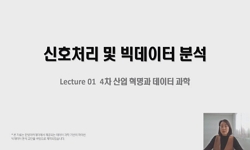Research topics: This paper aims to explore the change and continuity of China's strategies in the Xi Jinping era, providing empirical evidence by analyzing the linguistic expressions of the paramount leader through text mining analysis of Xi Jinping ...
http://chineseinput.net/에서 pinyin(병음)방식으로 중국어를 변환할 수 있습니다.
변환된 중국어를 복사하여 사용하시면 됩니다.
- 中文 을 입력하시려면 zhongwen을 입력하시고 space를누르시면됩니다.
- 北京 을 입력하시려면 beijing을 입력하시고 space를 누르시면 됩니다.

텍스트 마이닝을 통해 본 시진핑 시기 중국의 전략: 후진타오 시기와의 비교를 중심으로 = Text Mining Analysis of China's Strategy in the Xi Jinping Era: A Comparative Analysis with the Hu Jintao Era
한글로보기https://www.riss.kr/link?id=A108917191
- 저자
- 발행기관
- 학술지명
- 권호사항
-
발행연도
2023
-
작성언어
Korean
- 주제어
-
등재정보
KCI등재
-
자료형태
학술저널
-
수록면
480-510(31쪽)
- 제공처
-
0
상세조회 -
0
다운로드
부가정보
다국어 초록 (Multilingual Abstract)
· Research background: During Xi Jinping's first and second terms in office, China underwent notable policy changes, marked by an assertive foreign policy and increased intervention in the overall economy. These policy shifts, characteristic of the Xi Jinping era, also demonstrate a degree of continuity with the preceding Hu Jintao era. With Xi Jinping embarking on his third term as the paramount leader, encompassing leadership across the party, state, and military in 2023, and considering the expected continuation of his leadership, this study seeks to scrutinize the evolutions in China's policies and strategies since the advent of Xi Jinping's leadership. This will be achieved through a comparative analysis of speeches delivered by the current paramount leader, Xi Jinping, and his predecessor, Hu Jintao.
· Differences from prior research: In contrast to previous studies that selectively parsed specific contents of Xi Jinping's speeches or concentrated on specific policy domains, this study encompasses a comprehensive analysis of a corpus of 1,782 speeches spanning both Xi Jinping and Hu Jintao's inaugural and subsequent terms. It investigates strategic shifts across diverse domains, including foreign policy, politics, economy, and society. Employing quantitative analytical methods such as data-driven clustering and feature word extraction through TF-IDF, the study provides substantiated empirical evidence.
· Research method: This study analyzed a corpus of 1,618 speeches from the Xi Jinping era and 164 speeches from the Hu Jintao era, employing text mining techniques. The analysis involved clustering algorithms (K-means) for thematic categorization, examination, and the application of TF-IDF for the extraction of feature words. Moreover, the speeches underwent systematic classification into diverse comparative groups, including temporal categorizations (first term vs. second term) and leadership differentiations (Xi Jinping vs. Hu Jintao). This rigorous methodology facilitated a comprehensive analysis, exploring both shared features and distinctive aspects across these various dimensions.
· Research results: Through an examination of the language used by the paramount leader, the study reveals that China's strategy during the Xi Jinping era, when compared to the Hu Jintao era, places a greater emphasis on international order and cooperation in the realm of foreign policy, with a diminished emphasis on cross-strait relations. In domestic politics, there has been an ideological shift towards the 'Xi Jinping Thought on Socialism with Chinese Characteristics for a New Era,' highlighting a distinctive socialist ideology. Political rhetoric has intensified regarding the 'Great Rejuvenation of the Chinese Nation' and the pursuit of the rule of law. In the economic sphere, a sustained emphasis on economic development, reform and opening-up, and innovation is observed, accompanied by novel discussions on the linkage between security and economics. In the social sphere, a focus on poverty alleviation policies and agricultural issues is evident.
· Contribution points and expected effects: This paper contributes to the understanding of China's policies and strategies during the Xi Jinping era by deciphering the topics and terms used in the speeches of the top Chinese leaders, Xi Jinping and Hu Jintao, through the utilization of big data and linguistic approaches. This study is expected to enhance comprehension of the role of the paramount leader in China's policy decisions and contribute to gauging the future direction of Chinese policies and strategies.
Research topics: This paper aims to explore the change and continuity of China's strategies in the Xi Jinping era, providing empirical evidence by analyzing the linguistic expressions of the paramount leader through text mining analysis of Xi Jinping and Hu Jintao's speeches.
· Research background: During Xi Jinping's first and second terms in office, China underwent notable policy changes, marked by an assertive foreign policy and increased intervention in the overall economy. These policy shifts, characteristic of the Xi Jinping era, also demonstrate a degree of continuity with the preceding Hu Jintao era. With Xi Jinping embarking on his third term as the paramount leader, encompassing leadership across the party, state, and military in 2023, and considering the expected continuation of his leadership, this study seeks to scrutinize the evolutions in China's policies and strategies since the advent of Xi Jinping's leadership. This will be achieved through a comparative analysis of speeches delivered by the current paramount leader, Xi Jinping, and his predecessor, Hu Jintao.
· Differences from prior research: In contrast to previous studies that selectively parsed specific contents of Xi Jinping's speeches or concentrated on specific policy domains, this study encompasses a comprehensive analysis of a corpus of 1,782 speeches spanning both Xi Jinping and Hu Jintao's inaugural and subsequent terms. It investigates strategic shifts across diverse domains, including foreign policy, politics, economy, and society. Employing quantitative analytical methods such as data-driven clustering and feature word extraction through TF-IDF, the study provides substantiated empirical evidence.
· Research method: This study analyzed a corpus of 1,618 speeches from the Xi Jinping era and 164 speeches from the Hu Jintao era, employing text mining techniques. The analysis involved clustering algorithms (K-means) for thematic categorization, examination, and the application of TF-IDF for the extraction of feature words. Moreover, the speeches underwent systematic classification into diverse comparative groups, including temporal categorizations (first term vs. second term) and leadership differentiations (Xi Jinping vs. Hu Jintao). This rigorous methodology facilitated a comprehensive analysis, exploring both shared features and distinctive aspects across these various dimensions.
· Research results: Through an examination of the language used by the paramount leader, the study reveals that China's strategy during the Xi Jinping era, when compared to the Hu Jintao era, places a greater emphasis on international order and cooperation in the realm of foreign policy, with a diminished emphasis on cross-strait relations. In domestic politics, there has been an ideological shift towards the 'Xi Jinping Thought on Socialism with Chinese Characteristics for a New Era,' highlighting a distinctive socialist ideology. Political rhetoric has intensified regarding the 'Great Rejuvenation of the Chinese Nation' and the pursuit of the rule of law. In the economic sphere, a sustained emphasis on economic development, reform and opening-up, and innovation is observed, accompanied by novel discussions on the linkage between security and economics. In the social sphere, a focus on poverty alleviation policies and agricultural issues is evident.
· Contribution points and expected effects: This paper contributes to the understanding of China's policies and strategies during the Xi Jinping era by deciphering the topics and terms used in the speeches of the top Chinese leaders, Xi Jinping and Hu Jintao, through the utilization of big data and linguistic approaches. This study is expected to enhance comprehension of the role of the paramount leader in China's policy decisions and contribute to gauging the future direction of Chinese policies and strategies.
동일학술지(권/호) 다른 논문
-
보육교사 인성과 아동보호 행동 간 관계에서 직무만족의 매개효과: 아동학대 인식 및 신고 의도를 중심으로
- 세명대학교 인문사회과학연구소
- 허문영
- 2023
- KCI등재
-
챗GPT를 이용한 SNS 시의 생성 가능성 연구 : 하상욱 시와 미디어에 반영된 MZ세대론을 중심으로
- 세명대학교 인문사회과학연구소
- 인수봉
- 2023
- KCI등재
-
- 세명대학교 인문사회과학연구소
- ZHANG TIAN
- 2023
- KCI등재
-
- 세명대학교 인문사회과학연구소
- 장선영
- 2023
- KCI등재




 KCI
KCI DBpia
DBpia






